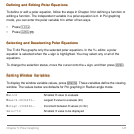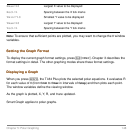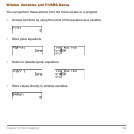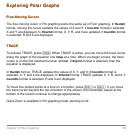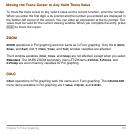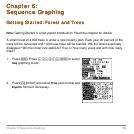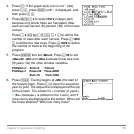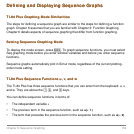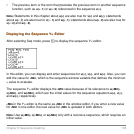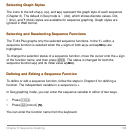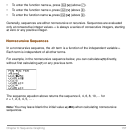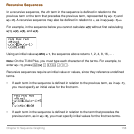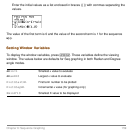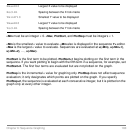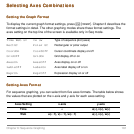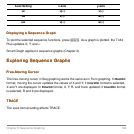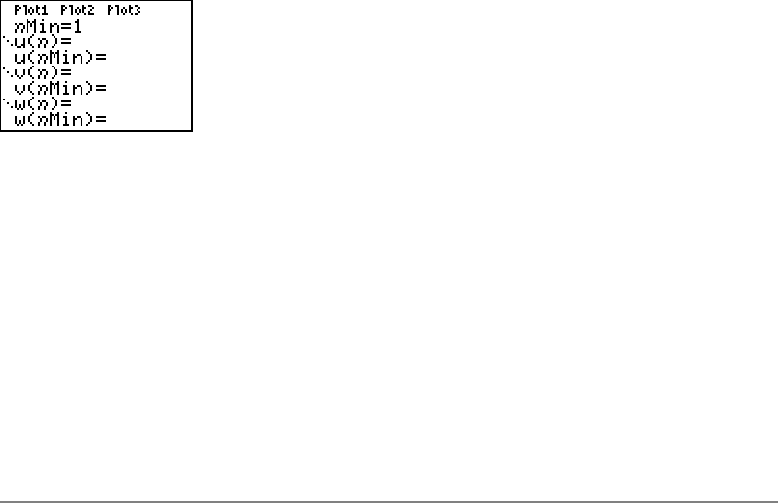
Chapter 6: Sequence Graphing 155
• The previous term or the term that precedes the previous term in another sequence
function, such as
u(nN1) or u(nN2) referenced in the sequence v(n).
Note: Statements in this chapter about u(n) are also true for v(n) and w(n); statements
about
u(nN1) are also true for v(nN1) and w(nN1); statements about u(nN2) are also true for
v(nN2) and w(nN2).
Displaying the Sequence Y= Editor
Displaying the Sequence Y= EditorDisplaying the Sequence Y= Editor
Displaying the Sequence Y= Editor
After selecting Seq mode, press o to display the sequence Y= editor.
In this editor, you can display and enter sequences for
u(n), v(n), and w(n). Also, you can
edit the value for
nMin, which is the sequence window variable that defines the minimum
n value to evaluate.
The sequence Y= editor displays the
nMin value because of its relevance to u(nMin),
v(nMin), and w(nMin), which are the initial values for the sequence equations u(n), v(n),
and
w(n), respectively.
nMin in the Y= editor is the same as nMin in the window editor. If you enter a new value
for
nMin in one editor, the new value for nMin is updated in both editors.
Note: Use u(nMin), v(nMin), or w(nMin) only with a recursive sequence, which requires an
initial value.



